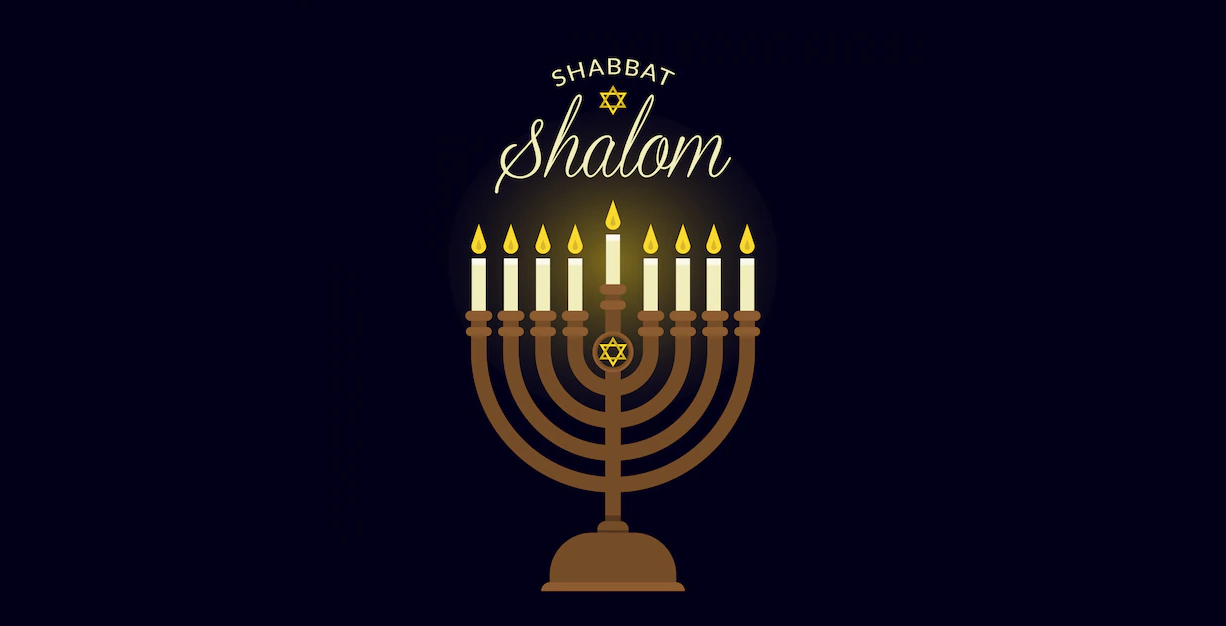
TORAH TEACHING
Video Blog, Worship / Avodah
EREV SHABBAT: EVERY FRIDAY AFTER SUNSET
SHABBAT MORNING SERVICE: COMMENCE EXACTLY @10:30AM EVERY SATURDAY
MUSIC / DANCE MINISTRIES / LITURGY / TORAH / BIBLE STUDY
KBY welcome everyone who has gift/love for music and dance to the worship ministries as it’s been formed currently and once formed we’ll not allow everyone to dance with the worship team during service. Please understand that the ministry of dance is a Spirit-led one which also requires practice and commitment. If you would like to dance, please speak with the Dance Worship leader about joining the team.
RABBI DRASH
Parashat Korah 5785
Colour Revolution aka Mob-Rule
Tammuz 2, 5785 / June 28, Sat. 2025
By Rabbi Yitzhak Avraam
God created a world replete with opposites; when something is wrong something else is right. When something is high, there are other things that counter it that are low. Somethings are heavy while others are light. There will always be a set amount of money that exists in the world, and it moves (zuz) around from one place to another, some have more while others have less, and it never stays the same. In fact, when it comes to an illness for which there is no cure, the rabbis teach us that the cure is already in the world just waiting to be discovered. In layman’s terms, this is the concept Hashem creates – the refuah is there even before the makka; God creates the cure even before the illness.
There are many more examples of this concept. To highlight one more, we find that where there is a villain there is a hero. There are situations at the outset where we cannot determine if someone is evil, acting in a wicked fashion. It is only as the individual’s actions grow clearer that we are able to see the truth and the person’s true sense, true intentions, are revealed.
There were signs of disunity, competition and jealousy breeding in the Camp. There were those who interpreted these events not only as weaknesses in the current leadership but also as nepotism. Korach- קֹרַח the Levite was no fool; he thus made a move to conspire to overthrow the leadership of Moses and Aaron and take control of events which seemed spiraling out of control.
Up until now, every revolt by the people against God, Moses, and Aaron has been generated by fear. Fear that their base need for sustenance will not be met or the fear that gripped them in the Wilderness of Paran when they listened to the words of the lying scouts and refused to take the land. Fear that comes about through a lack of trust in God. These revolts were more or less spontaneous – given over to a particular moment under a particular circumstance – the revolt instigated by the opportunist powered by mob rule.
However, the revolt that takes place in Parashat Ḳoraḥ is of a different nature. This is not a revolt spawned by the moment driven by raw negative emotion, this revolt is well thought out, reasoned by a certain rationale, based upon time honored ideals. Neither is this a revolt undertaken by a cohesive group unified in one sole objective, but by two separate groups each with its own particular grievance that have formed an alliance in order to overthrow the prevailing system.
“And you shall be to Me a kingdom of priests and a holy nation” (Ex. 19:4-6) the Torah does not state that we are a holy nation but that we will be holy – holiness is earned it isn’t intrinsic. We do not keep the Torah because we are holy, we keep it in order to be holy! Holiness is thus an attainable privilege, an end to strive for, and an ongoing process throughout our lives. Ḳoraḥ misunderstands the concept of holiness, for him holiness is intrinsic. This has theological ramifications for when holiness becomes intrinsic there is nothing to be achieved, no responsibility is demanded from the individual; thus, holiness becomes profane. Even an unrighteous individual can claim a place in the holy nation for he is intrinsically holy. How many Jews today believe that they are holy simply because being an Israelite gives them that privilege?
Therefore, the objectives of Ḳoraḥism are to impose upon the people a value system fomented out of the political theory of equality and a distorted idea of the concept of holiness. Ḳoraḥism insists – due to its warped understanding of holiness – that if all of Israel is holy then surely all must be equal in their holiness. If this is so then all Levites are equal to any other Levite in their holiness, and since YHWH separated all Levites from Israel to serve in the Mishkan then all Levites have an equal share of the priesthood no less so than Aaron and his sons. Ḳoraḥism is religious egalitarianism governed by a distorted concept of holiness that panders to the egos of man rather than to the word and desire of YHWH; upholding these principles is a revolt against YHWH in the image of Ḳoraḥ.
The revolt of Dathan and Aviram was socio-political. It was purely secular in nature and could even be regarded as being atheistic since it denied YHWH by accrediting Moses for the Exodus and for everything that had happened. Dathan and Aviram have an issue with leadership. According to the time-honored tradition of primogenitary rights (firstborn rights of inheritance), a tradition endorsed by the Torah, the tribe of Reuben being descended from Reuben the firstborn of Jacob should be first among the tribes and thus inherit the leadership of the nation.
In the view of Dathan and Aviram it did not matter whether or not YHWH had chosen Moses and Aaron to lead the nation, time honored tradition and personal ambition overruled YHWH’s decision. Actions that are God denying, or place time honored tradition above the word of YHWH are those in the footsteps of Dathan and Aviram.
Remember Torah is all about relationship NOT religion.
Shabbat Shalom!!!
LAST WEEK
Parashat Tetzaveh 5785
You’re the LIGHT of the World
Adar 8, 5785 / March 8, Sat. 2025
By Rabbi Yitzhak Avraam
In this week’s Parshas HaShavua TeTzaveh the Torah states in Shmos 27:20 “V’Ata TeTzaveh Es Bnai Yisrael V’Yikchu Eilecha Shemen Zayis Zach Kasis LaMaor L’Ha’alos Ner Tamid”. “You, [Moshe], must command the Israelites to bring you clear, illuminating oil, made from hand crushed olives, to keep the lamp constantly burning”. Rashi explains the word ‘crushing’- the olives were crushed in a mortar; they are not ground with a mill-stone. This is done to assure that there will not be any remaining sediment. Only after he has obtained the first drop does he put the olives into a mill and grinds them. The second oil is unfit for the candlestick, but it is fit for the meal offerings, as it is stated ‘beaten for the light’, but it is not essential that it be beaten for meal offerings. Rav Aleksander Levinson explains that the difference between oil used for the candles and oil used for the offerings is the same difference in the two approaches to serve Hashem.
Some serve God because they are commanded and thereby do it, while others serve Hashem as a hart (deer) yearns or longs to oblige. In the sense of the hart or deer, a person serves Hashem through an inner desire to get close to Him. The innermost voice within tells him to do the Mitzva. On the other hand, the person who does the Mitzva strictly because he is commanded to do so is like a servant who follows the command of his master without knowing why, without understanding the purpose for doing the Mitzva. Both methods of serving God are observed, and both methods are necessary.
Taking an olive and crushing it to take the oil for lighting of the menorah was strictly a commandment. The first words of the parsha and the name of the parsha “Tetzaveh” is the command. The command represents the first drop of oil to ooze out from the crushing process. This resulted from the obligation of the Mitzva itself. The second drop of oil for the Mincha offering was not from the crushing. The Korban Mincha was brought to show gratitude and give thanks for all the goodness Hashem bestows upon us. This sacrifice and offering came from within our essence, from a deep desire to get close to and cling to God. As it states in the beginning of Vayikra, it was the ‘Nefesh’- the soul – and the person who would offer it, not because it was a command. The word Nefesh/soul is only mentioned by the Mincha Korban.
Each and every person serves Hashem within his or her own capacity, some needing a direct command, others willing to do it on their own.
These two paths or philosophies need to be implemented in EVERY single Jew, sometimes using one method and, when necessary, sometimes applying the other. With regard to the extreme generations, we need to assign different methods to each group. When Baalei Teshuva deal with their non-observant relatives it must be taught through Tzivuy or command, this is what we do and this is how we do it. We educate them to the basic tenets and rules of the Torah. When it comes to the educated children of Baalei Teshuva, the parents need to display an inner spiritual desire to get ever closer to Hashem. Parents from all backgrounds need to teach by example and display the fire that burnt in them to get close to Hashem. The ritualistic component obviously must be done, but to educate our children it must be from within and the desire that we want to do the Mitzvos not that we must do the Mitzvos.
Our hope and prayer are to educate from both sides and bring the family together, showing and displaying a love of Torah and fulfilling the Mitzvos because we are commanded to do so and because we want to do so.
Remember Torah is all about relationship NOT religion.
Shabbat Shalom!!!
